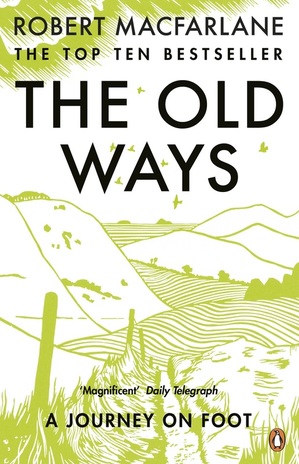|
I am immersing myself in the writings of Robert MacFarlane at the moment to try and find inspiration for my Dorset-based novel, The Right Place (also on the list is Thomas Hardy of course!). At the moment, I am reading his fantastic book The Old Ways and some of his journalism. I intend to carry on walking a lot around West Dorset when I stay in the county over the winter to acquaint myself with the intricacies of its ancestral landscape. I have just finished Mr Macfarlane's excellent recent article "The eeriness of the English countryside" which defines very well what I am attempting to do in The Right Place. I guess I have touched on the subject already in my first novels I Am a Muse (set in part in north Cornwall) and The Book of Thoth (a full-on Gothic novel located on an isolated estate in Somerset). It is interesting to see that there is a whole cultural movement at the moment which reconnects with the countryside but avoids the pastoral to make it as exciting a setting as the urban jungle of a metropolis such as London. I am happy to see that one of my all-time favourites PJ Harvey is mentioned - especially as The Right Place is inspired by her music and in particular her song The Wind about St Catherine's Chapel in Abbotsbury. I found the extracts below to perfectly express the nature of my own work (even though I intend to return to a more urban form of landscape with my fourth novel before yet again escape the concrete jungle by exploring the more rural setting of Exmoor in the fifth book.) A loose but substantial body of work is emerging that explores the English landscape in terms of its anomalies rather than its continuities, that is sceptical of comfortable notions of “dwelling” and “belonging”, and of the packagings of the past as “heritage”, and that locates itself within a spectred rather than a sceptred isle. [...] What is under way, across a broad spectrum of culture, is an attempt to account for the turbulence of England in the era of late capitalism. The supernatural and paranormal have always been means of figuring powers that cannot otherwise find visible expression. Contemporary anxieties and dissents are here being reassembled and re-presented as spectres, shadows or monsters: our noun monster, indeed, shares an etymology with our verb to demonstrate, meaning to show or reveal (with a largely lost sense of omen or portent).
0 Comments
Your comment will be posted after it is approved.
Leave a Reply. |
AuthorI think therefore I write. Archives
June 2024
CategoriesAll Art Books Cinema Culture Events Idea Ideas Inspiration Inspirations Literature Music People Places Promo Publishing Reading Reviews Self Publishing Self Publishing Self-publishing Society Theatre Thoughts Working Work In Progress Work In Progress Writing Writings |

 RSS Feed
RSS Feed
